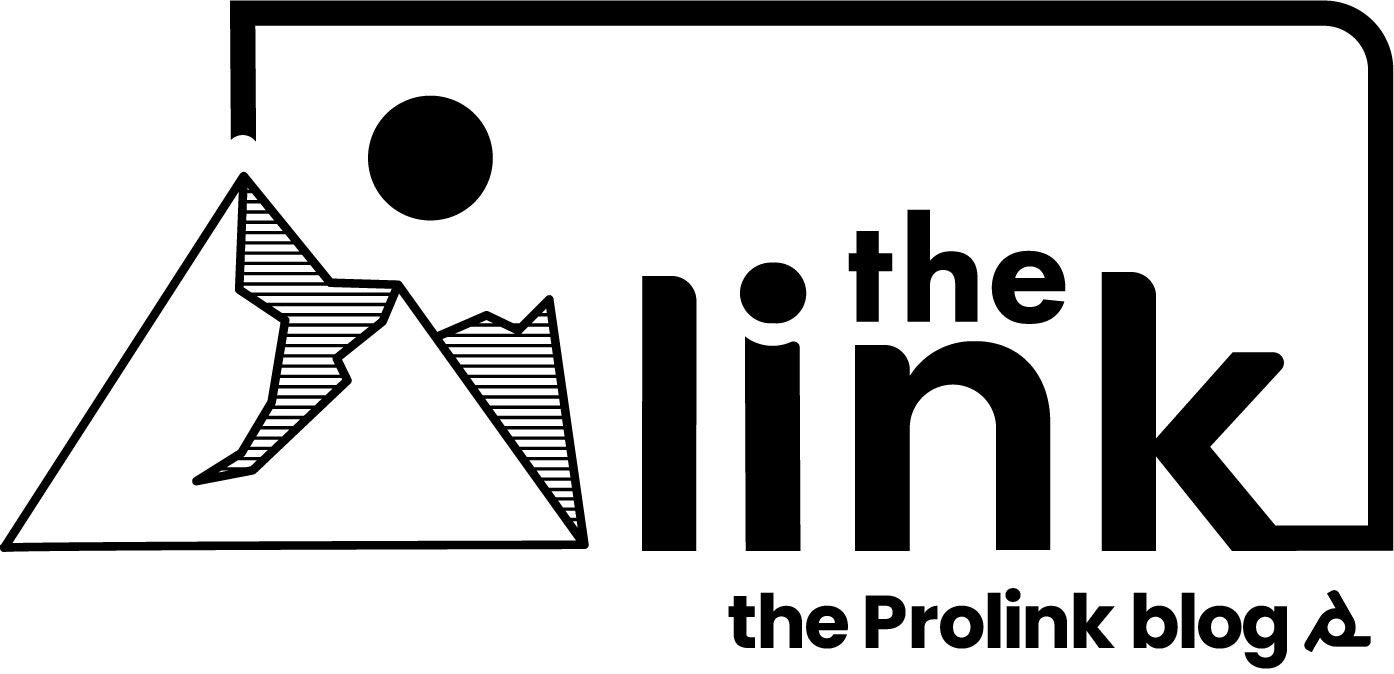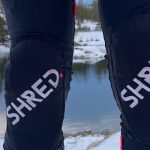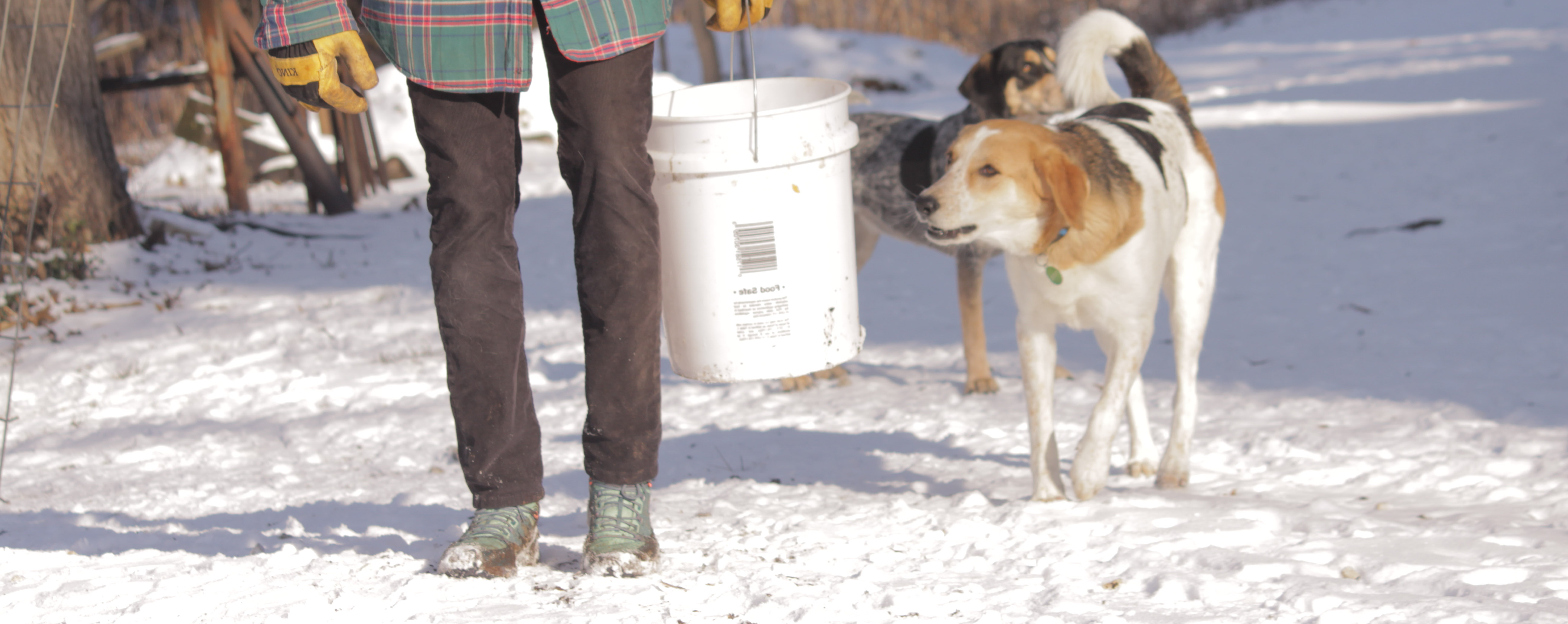Outdoor Companies Who Give A Damn About Earth
Happy earth MONTH and Earth Day (April 22, 2024) – a time to advocate for the planet we live on and celebrate the anniversary of the modern environmental movement. To celebrate, we’re diving into the transition from traditional textiles to synthetic (plastic) materials, how synthetic materials are contributing to the climate crisis, outdoor retail companies striving for change, and what you as a consumer can do to help. As outdoor adventurers we need to be warm in the winter and stay cool in the summer but at what cost? Here, we take a closer look at the problem – and further our choices for a solution.
While reading a National Geographic magazine last year, I learned that most of the clothes I wear and wash contribute to plastic pollution from particles called microplastics. As I read, I was shocked to learn that microplastics come off of our clothes with every wash. Because they are so small, they are unfilterable, making their way right back into our city water supply and eventually the ocean.
Take a moment, right now, and check the tag of an item of clothing you’re wearing. I’m going to guess it’s made with some sort of polyester, nylon and/or spandex. Am I a magician? – maybe. The apparel industry has been moving from organic materials like cotton and wool to synthetic materials over the past 100 years. Since 1938, brands have been switching to synthetics for their convenience, price, and durability.
Polyester, Nylon and Spandex have a lot in common. For starters, they’re all petroleum-based materials, they’re human-made (not naturally occuring), and factory-made. These are also materials some outdoor recreation companies are trying to get away from.
There is no doubt the gear we use provides us with an optimal outdoor experience, yet the materials used are far from being environmentally optimal. The irony! Below are outdoor brands implementing sustainability in their business models, and trying to practice what they preach.
Quick jump to outdoor company brands here:
Apparel
Footwear
Outdoor Accessories
Camping
Snow
Climbing
Water
Textile History
If you’re reading this with a mindset cultivated by the United States, it may be hard to fathom –but clothes don’t just grow off a company tree, they are made by hand. In the United States, we tend to outsource this type of factory work because it is labor-intensive and our labor costs are significantly more expensive than in some other countries. Before there were clothing companies, people made their own clothes by sewing them. The textile and apparel industry has been around since at least 30,000 BC, when they used hides and plant fibers to make clothing—hello fibrous hemp stalk. Once the Industrial Revolution hit the world, textiles and apparel were forever changed by technologies like the cotton gin and pedal-powered sewing machines. Now, there are many technological advances on the textile side of the industry, including the synthetic fibers we see in our outdoor gear.
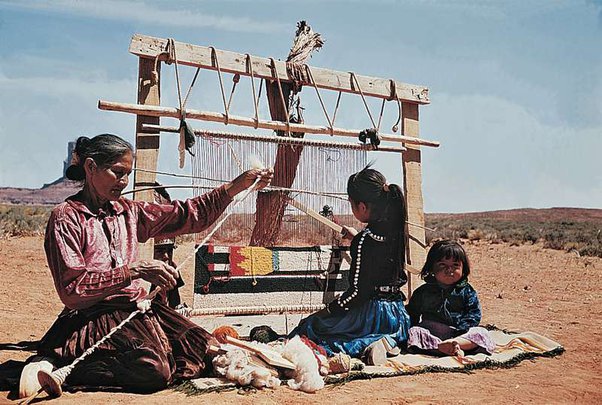
Synthetic Materials Explained
Synthetic fibers, or “not real” fibers, were made by scientists in an effort to create a more versatile and cheaper fiber than that found in nature. While synthetic fibers are more durable, their overall impact on human and environmental health is negative. Synthetic fibers are generally made by starting with petroleum and chemicals like dimethyl terephthalate to create polymers. Polymers are the building blocks of all fabrics because they clump together to form long fibers. The finished product is plastic beads that are then washed, stretched, spun, and dyed. So far synthetic material may not sound too bad, however, think about when they get thrown away.
The Synthetic Path to Destruction
The birth of synthetic fibers has changed the decomposition cycle from cyclical to linear. In a cyclical system, items are used for their lifespan, then recycled into the system and turned into something else. In a linear system, products head straight to a landfill, contaminating our water supply, soil, and air quality.
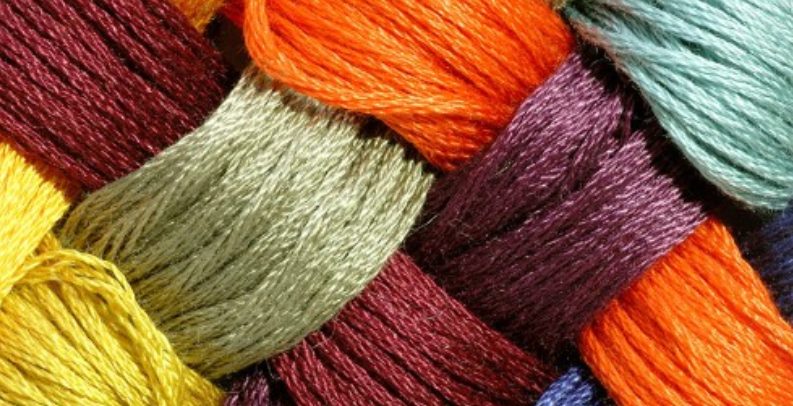
Normally, decomposers like earthworms and fungi can break down complex, organic plant and animal material and turn it back into basic elements like oxygen, carbon, nitrogen, etc. For example, silk is made from silkworm cocoons which get their food from Mulberry tree leaves. So, a decomposer can easily break down animal-based material and recycle it back into the soil and the air. But how do decomposers break down non-organic material? Well, most plastic is not biodegradable so organisms can’t break it down. Since this material is unrecognizable to decomposers, it tends to sit in landfills and contaminate the environment with the chemicals used to create it. Because synthetic fibers are chemically made in a lab, it takes a lab to break them down–not mother nature. And for our planet, and humanity, that’s a problem.
Outdoor Companies Who Give A Damn
Just like reading the ingredients at the grocery store, it’s time to slow down before each gear purchase and make conscious competent decisions. It is one of our strongest powers in this race to live better here on Earth.
The following North American (and a couple European) companies were chosen for their commitment to a better Earth, setting an industry standard of recycled and organic materials, and going above and beyond this standard by contributing to communities to support the very problem their industry has created. Most companies have a third-party certification which verifies the claims they are making.
Apparel
Tentree (Canada)
Do you believe trees can save the planet? Tentree does and they are making a big impact with small changes. Not only does your purchase support an environmentally conscious company, but part of your purchase goes towards planting 10 trees. Tentree is an apparel and accessories brand selling coats, leggings, underwear, and more.


- Ethical practices: For every purchase 10 trees are planted in Asia and Africa, climate+ (packages offered to reduce carbon based on your lifestyle)
- Materials used: organic cotton, hemp, recycled polyester, and TENCEL
- Manufactured In: Vietnam, China, India
- Third-Party Certifications: Certified B Corporation, Climate Neutral Certified, Science Based Targets, Textile Exchange
Patagonia
Patagonia is an outdoor clothing and gear company that was founded in 1973. Whether you’re looking for high-performance gear or casual attire, Patagonia provides it all while also staying committed to their core values of: quality, integrity, environmentalism, and justice.


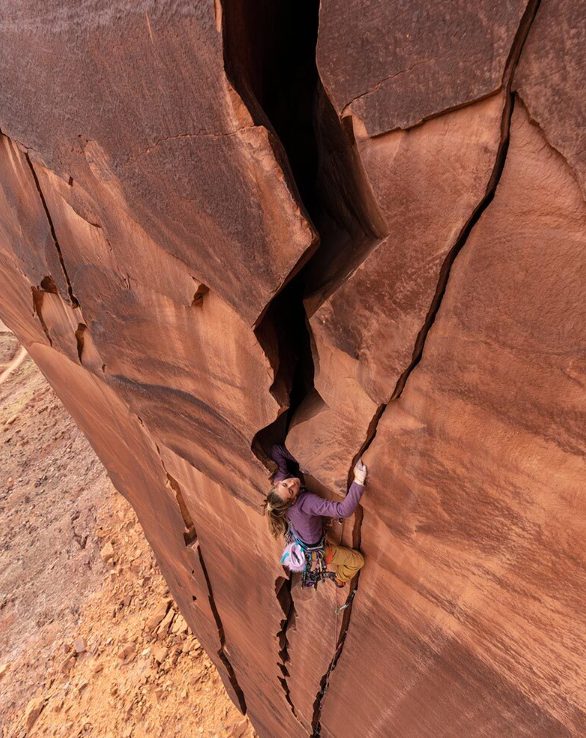
- Ethical practices: 1% for the planet program, helped found Regenerative Organic Alliance (an organic certification company), Worn Wear clothing line, Patagonia Provisions (responsibly sourced foods), eco-films, lifetime warranty
- Materials used: 87% of products are organic and Regenerative Organic cotton, recycled polyester and recycled nylon, yulex natural rubber. (Goal of 100% by 2025)
- Manufactured In: Thailand, Vietnam, Taiwan, India, Portugal, Japan, China, Sri Lanka, Nicaragua
- Third-Party Certifications: Fair Trade (37% of clothing), B Certified Corp, Fair Labor
United by Blue
According to United by Blue, by 2050 there will be more plastic in the ocean than fish. In order to reduce this terrifying statistic, United by Blue is on a mission to match each product sold for a pound of trash removed. United by Blue’s low waste, slow fashion business model sets them apart from other apparel companies. You can find apparel, bags, accessories and household items on their website.
- Ethical Practices: For every product purchased, United by Blue removes one pound of trash, plastic-free packaging
- Materials Used: organic/recycled cotton, recycled polyester, recycled wool, recycled nylon, hemp, recycled cashmere, Lenzing Ecovero, Wool, Corozo, BisonShield, (R)evolution, (Re)active,
- Manufactured in: China, Vietnam, Cambodia, India, Italy, Romania, USA (some socks)
- Third-Party Certifications: Certified B Corporation
Footwear
Point 6
If you’re looking for U.S-made, fairly priced, durable socks then Point 6 is for you. Although they use virgin Nylon in their products, the fact that they’re U.S. made and the wool comes from an ethical farm in New Zealand make up for the lack of recycled materials. Wool is a superb fabric to wear for its odor resistance as wool has natural antibacterial properties. Wool fibers can also keep you dryer longer as they can absorb and repel water. I know firsthand how well produced these socks are as I’ve had a pair since 2021 and they are still holding strong three years later!

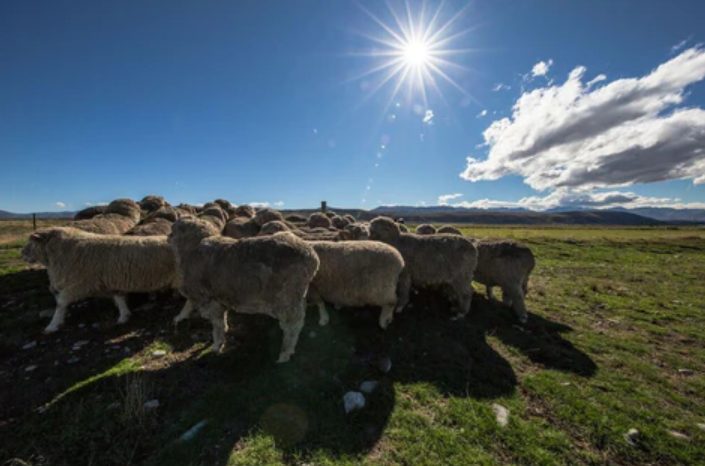
- Ethical practices: Lifetime warranty, eco-packaging (EcoEnclose), Supports communities in need (scholarship, donations, etc…), socks manufactured in the United States
- Materials used: New Zealand Merino Wool, Nylon, Elastic
- Manufactured in: USA
- Third-party certifications: None
Outdoor Accessories
Klean Kanteen (Water Bottles)
In 2004, Klean Kanteen became the first company in the United States to offer reusable stainless steel water bottles and they haven’t slowed down since. Along with their drinking products, they also offer earth friendly food containers, kids products, and accessories like straws. Getting away from single use plastic is an easy way for humans to reduce our impact and Klean Kanteen is here to help us Klean up our act.

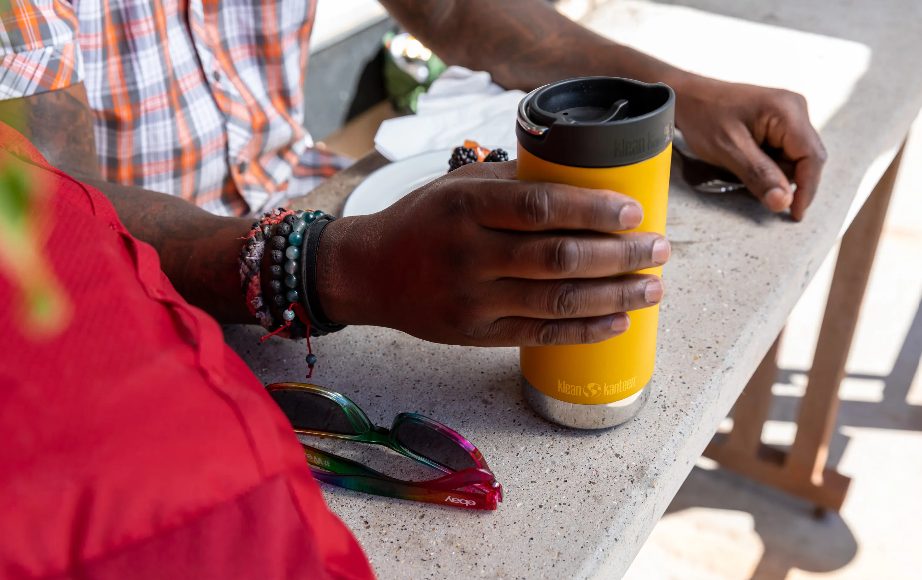

- Ethical practices: Donated more than $4.1 million to environmental non-profits through 1% for the planet
- Materials used: Recycled Steel (95% of products), virgin stainless steel and silicone
- Manufactured in: China
- Third-party certifications: Climate Neutral certified, 1% for the planet, Certified B corporation, Intertek certified (steel certification)
Badger (Sunscreen)
4,000 to 6,000 tons of sunscreen is estimated to be washed off into the ocean affecting a myriad of marine ecosystems. Hawai’i was the first state to ban the sale of sunscreens with harmful ocean chemicals – National Park Service lists them here. Luckily, there are companies like Badger which is a health-conscious body care company on a mission to create a healthier world. They make a wide variety of body care products including sunscreens, bug spray, and hair care all with natural ingredients.
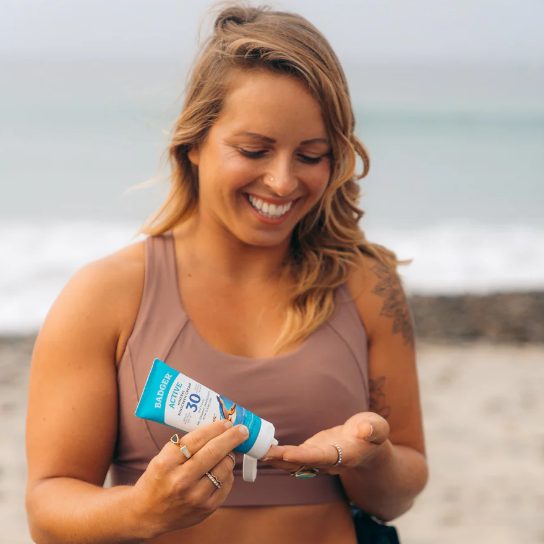
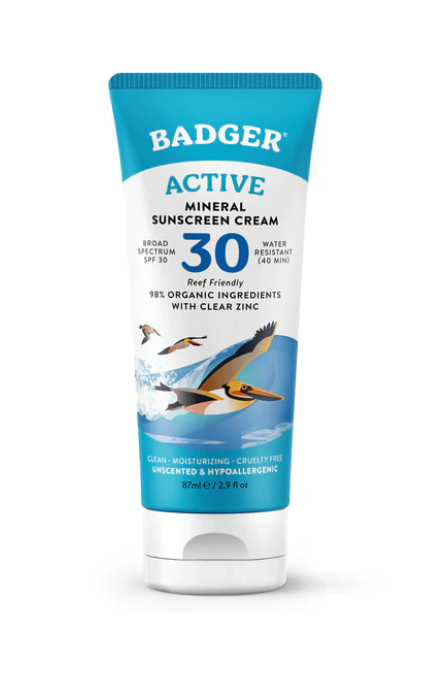
- Ethical practices: Badger Ecology Center giving back to community
- Materials used: 98% organic ingredients, Organic Sunflower Oil, Organic Beeswax, Sunflower Vitamin E (base ingredients)
- Manufactured in: United States
- Third-party certifications: Certified B Corporation, Cruelty Free, National Organic Standards (NSF), Protect Land + Sea Certification
Camping
Rab (Sleeping Bags + Pads)
Rab is a UK-based company that makes high-quality apparel and gear for the above-average adventurer. Specifically, all of their sleeping bags and pads are made from recycled material. In 2022, 66% of all fabric purchased was recycled and they are continuing to implement this practice into the rest of their product plans.
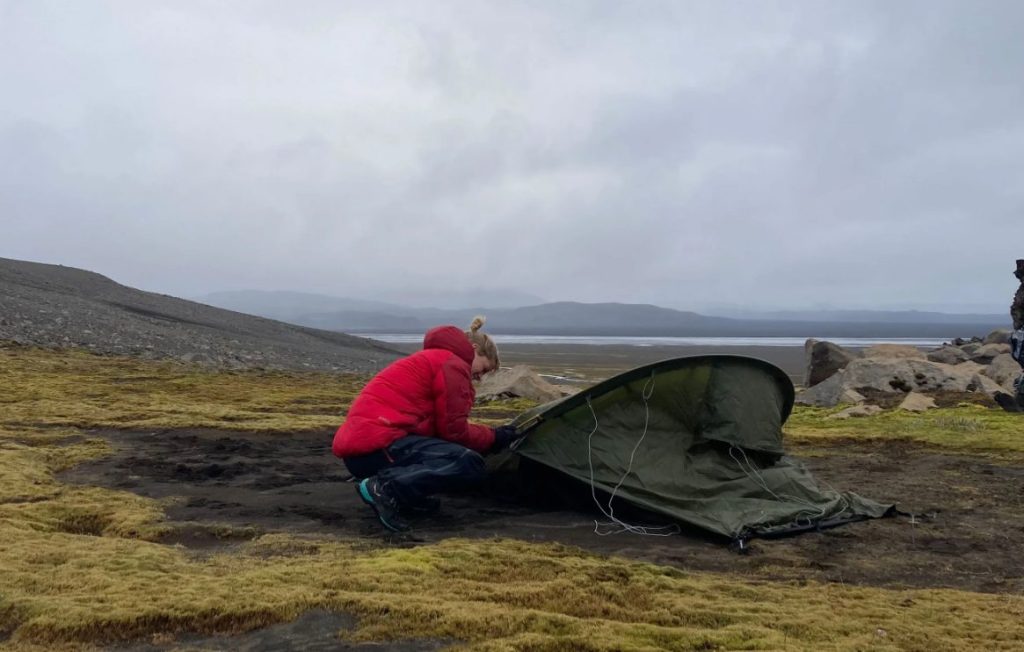

- Ethical practices: Working with Single Use Plastic Project to reduce plastic waste, active participants in the outdoor community, offers lifetime repairs for original owners (with proof, restrictions apply), removed long-chain (C8) fluorocarbons from supply chain
- Materials used: European Goose Down (Responsible Down Standard), Recycled Atmos, Fluorocarbon-Free DWR, Recycled Pertex® Quantum, Recycled Nylon, Recycled Polyester
- Manufactured In: Bangladesh, Cambodia, China, Indonesia, Myanmar, Philippines, Vietnam, United Kingdom
- Third-Party Certifications: Climate Neutral Company, Fair Wear
NEMO
NEMO is an environmentally conscious outdoor equipment company that sells tents, sleeping pads, and shelters.
- Ethical practices: Created Endless Promise collection (100% recyclable), headquarters (Dover, New Hampshire) is powered by 100% renewable energy, lifetime warranty (from original purchaser)
- Materials used: Various tents contain – Recycled Polyester, Recycled Nylon, OSMO
- Manufactured In: From website – “If you would like to know where a specific item is made, our Customer Service team is happy to share those details with you!”
- Third-Party Certifications: bluesign
- Partnerships: Textile Exchange, Quantis, Intertek, How2Recycle, Higg Index
Snow
MountainFlow (Eco-Wax + Eco Poles)
Did you know most ski wax is made from petroleum? And every time your snowboard/skis slide on the snow, small pieces of the wax are pulled off the bases and into the snowpack. With a traditional ski wax, petroleum and/or fluorocarbon particles are transported into the snowpack and eventually into the water supply. Make the switch to a plant-based alternative today for a cleaner tomorrow!
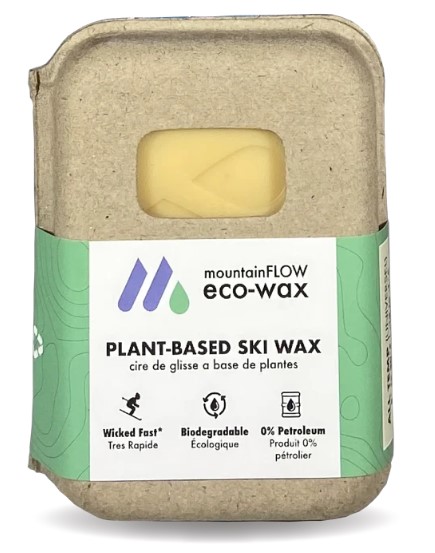
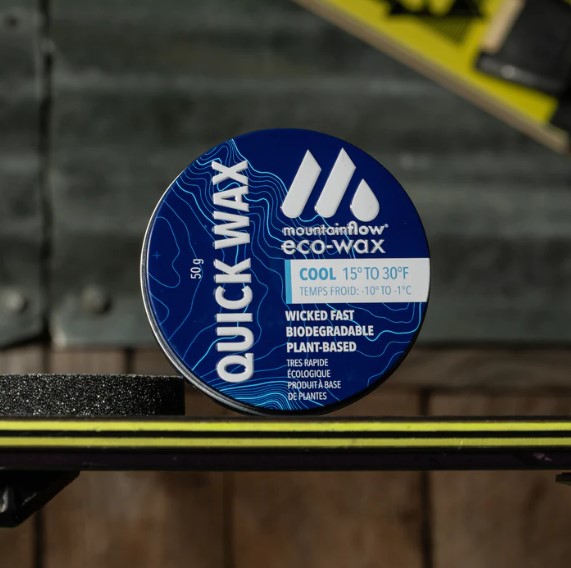
- Ethical practices: Eco-friendly packaging, 0% petroleum used
- Materials used: recycled aluminum (poles), 100% plant-based (patent pending wax)
- Manufactured In: Carbondale, CO, United States
- Third-Party Certifications: Certified B Corporation, USDA Certified Biobased Product
Ignik Multi-Use Warmers
Ignik makes high-quality, environmentally thoughtful heating products for those who spend a fair amount of time outside. Specifically, their hand and foot warmers can be used up to three days after activation and all contents inside the pouch are biodegradable.
- Ethical practices: 1% of sales goes toward fighting climate change in the Arctic
- Materials used: 100% biodegradable material (inside pouch), AIRBARRIER pouch is 100% recyclable
- Manufactured In: China, Thailand, Washington State
- Third-Party Certifications: None
Grass Sticks
Snap another ski pole this season? Ditch the metal and give bamboo poles a try. Grass Sticks has been around since 2014 innovating all things sticks including touring sticks, trekking poles, paddles, toilet plungers, and more. Grass Sticks is also made in the United States, reducing carbon emissions by limiting transportation. By and large, bamboo can absorb more CO2, produce more oxygen, and produce more lumber than its tree counterpart. And, since bamboo is plant-based, it tends to flex better under stress creating a durable and agile product.
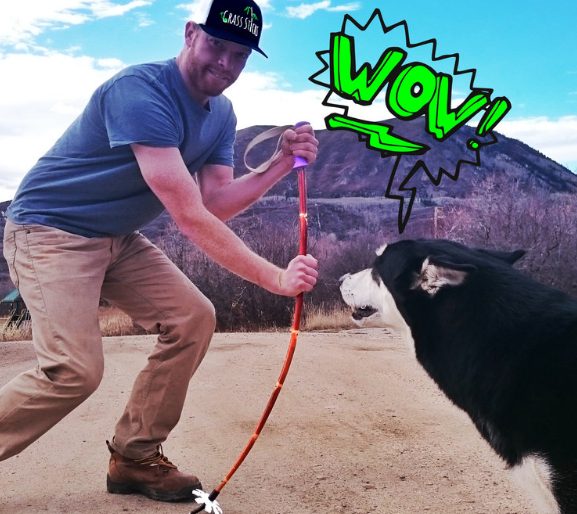


- Ethical practices: Offers an unlimited 2-year warranty and a limited lifetime warranty
- Materials used: Bamboo, 100% recycled polyester
- Manufactured In: Steamboat Springs, CO, United States
- Third-Party Certifications: None
Mervin Manufacturing
If you’re looking for U.S.-made, environmentally friendly, reasonably priced snowboard gear then look no further. Mervin Manufacturing designs and manufactures gear for LibTech, Roxy, GNU, and Bent Metal Binding Works. From its inception, Mervin Manufacturing has strived to be as environmentally conscious as possible and it shows from their eco-materials to running eco power throughout their facility.
- Ethical practices: The Mervin factory heating system runs on renewable-based biodiesel
- Materials used: non-petroleum-based bioplastics made from castor beans, soy-based elastomer, low VOC (Volatile Organic Compound) epoxy resin systems, renewable forest products for board cores, environmentally friendly water-based ink sublimation graphics system to print all snowboard graphics
- Manufactured In: Carlsborg, Washington, United States
- Third-Party Certifications: Columbian Gold is FSC “pure” certified
CAPiTA Snowboards (Austria)
It would be unethical to write this article and not mention CAPiTA Snowboards. All snowboards are made at the “Mothership” manufacturing facility which runs on 100% self-generated clean energy. CAPiTA is committed to being an environmentally responsible producer with the motto, “EVERYTHING IS POSSIBLE.”
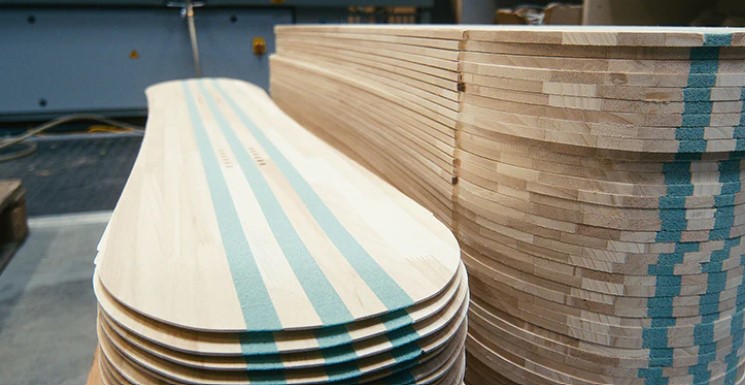
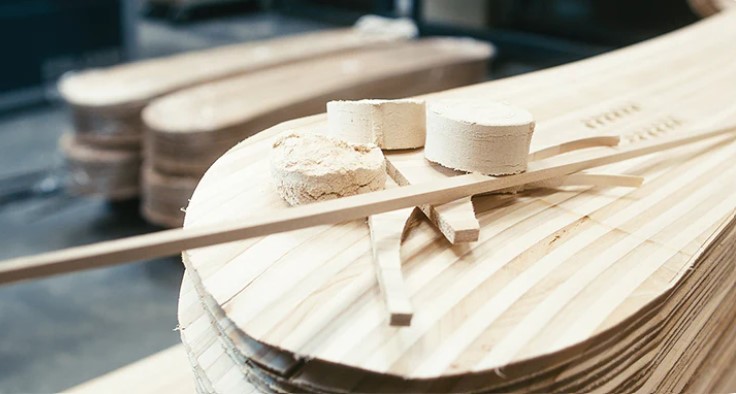
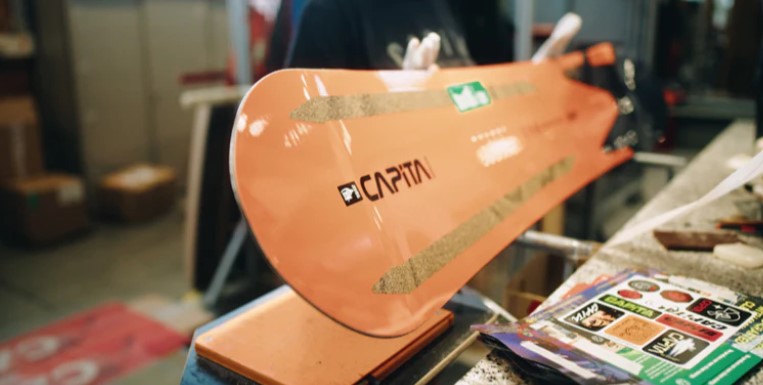
- Ethical practices: World’s first snowboard manufacturing facility powered by 100% clean energy, 90% of materials locally sourced within an 8-hour drive
- Materials used: FSC-certified wood cores, plant-based bio resins, water-based, UV-curable, and solventless inks for printing, zero toxic lacquer for top sheets, 100% recyclable shrink wrap film
- Manufactured In: Austria
- Third-Party Certifications: FSC Certified Core
Climbing
Edelrid (Germany)
Edelrid is leading the environmentally friendly climbing gear world with innovative ropes, carabiners, and more. Their self-proclaimed Climb Green label marks their collection of environmentally responsible equipment. Every climbing gear company should model what Edelrid is doing.
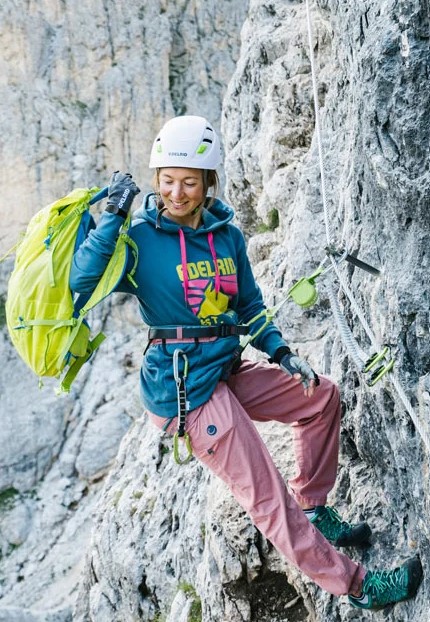
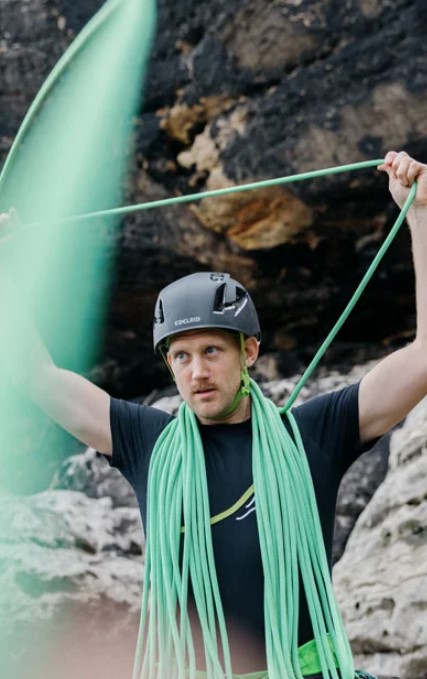
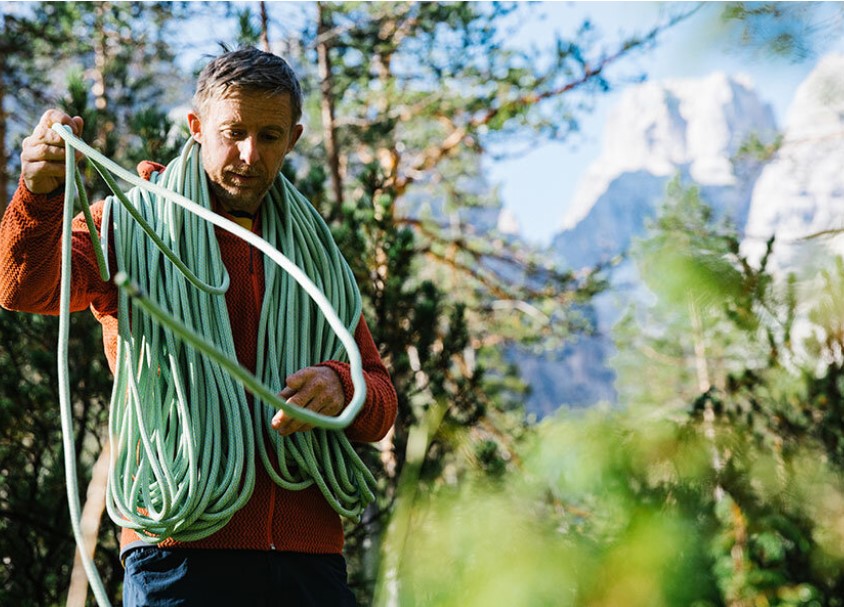
- Ethical practices: Founding member of the Albrecht von Dewitz Foundation (funds both national and international projects and initiatives geared towards supporting innovations for tomorrow’s world, ensuring safe mountaineering, and protecting the alpine world)
- Materials used: Non-anodized carabiners, PFC and PFAS-free rope, 50% recycled rope material
- Manufactured In: Isny, Germany
- Third-Party Certifications: Fair Wear Foundation, bluesign
Water
Alpacka Raft
Hailing from Colorado, Alpacka Raft is coming forth as an eco-friendly packable raft company. I chose to feature Alpacka Raft because it is made in the United States and they are making progress in the right direction to be environmentally friendly in the office and with some protocols and procedures. Change takes time and money – keep it up, Alpacka Raft!


- Ethical practices: Committed to sourcing US-made raw materials to reduce carbon footprint and support other US manufacturers, cut down on packaging, extra plastic, boxes, and printed materials, upgrading equipment to reduce, material waste and energy usage, supports various conservation initiatives
- Materials used: NO VOC adhesives in all manufacturing processes, Nylon
- Manufactured In: Mancos, CO, United States
- Third-Party Certifications: None
What We Can Do
As consumers, we possess a kind of unconscious incompetence (you don’t know what you don’t know) mentality when it comes to how things are made and what to buy. However, we, as humans, are waking up to the paths of destruction we’ve followed for decades and finding new solutions to combat these catastrophic problems. Here are some ways you can proactively express your conscious competence when it comes to plastic pollution.
- Wash your clothes less frequently. Try wearing them more than once before washing or hang them overnight to let them air out so you can wear them again
- Avoid single-use plastic as much as possible. Takeout? Tell them you don’t need utensils
- Stop buying bottled water – unless there’s a contamination crisis
- Be an earthworm too! Try to eat natural, organic, and whole food as much as possible and ditch the artificially flavored, chemically processed, synthetic food
- Don’t shame yourself for not knowing. Staying informed and taking initiative will empower you further than shame ever will. There is no such thing as the perfect environmentalist. Everyone has a footprint and big change starts small.
- Search for Eco-Friendly alternatives when buying anything
- Use reusable shopping bags
- Look for PFC & PFAS free gear – Poly- and perfluorinated chemicals (PFCs), and their subcategory PFAS in particular, enable outdoor and climbing equipment to repel oil, grease, and water. Once released into the environment, however, the chemicals degrade very slowly, posing a long-term environmental problem
- Talk about plastic pollution with friends and family – awareness is our greatest weapon
- Do your own research – knowledge is power
- Buy U.S. made products as much as possible – reducing carbon emissions
- Buy from eco-friendly companies
Checkout these other Outdoor ProLink articles about taking care of Earth
- 5 Ways to Make Eco-Friendly Choices with Your Outdoor Gear
- 11 Outdoor Brands Making an Environmental Difference
- Amazing Eco-Friendly Gear We are Excited About
- Keep Cool in Wool: Why Wool is Ideal for Summer Adventures
- Adventuring Responsibly: Eco-friendly Tips From the Outdoor Prolink Team
- Sustaining the Future of Fish
- 7 Sustainable Camping Tips To Use This Summer
- Leave No Trace Practices for Climbers
- A Beginners Guide to Resoling Your Climbing Shoes
The Final Word
Like it or not, we are all closely connected within our world. Choices we make affect us all, even the choice of material you use for exploring. So if you give a damn about Earth, mean what you say and take the little steps to creating big change.
About the Gear Tester

